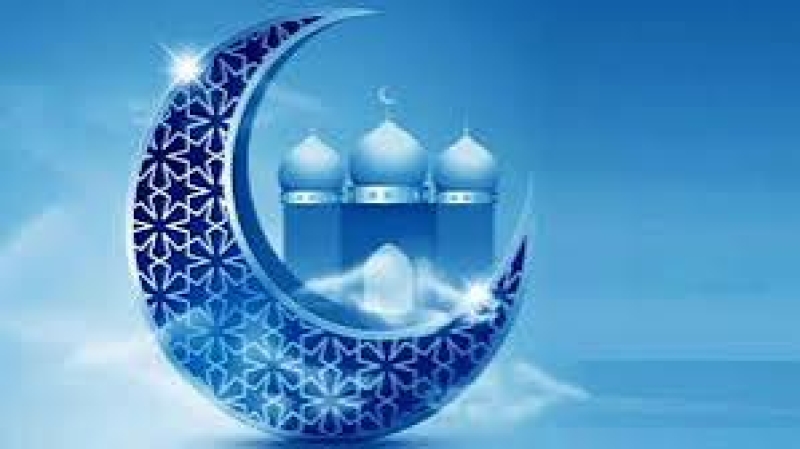- India Sees 9% Drop in Foreign Tourists as Bangladesh Visits Plunge |
- Dhaka Urges Restraint in Pakistan-Afghan War |
- Guterres Urges Action on Safe Migration Pact |
- OpenAI Raises $110B in Amazon-Led Funding |
- Puppet show enchants Children as Boi Mela comes alive on day 2 |
The Rituals and Significance of Eid-ul-Fitr

The word Eid carries profound meanings — ‘frequent coming,’ ‘festival,’ and ‘happiness’ — and is most often associated with the two major festivals in Islam. On these occasions, Muslims gather at Eidgahs (open fields where the Eid prayers are performed) or mosques to offer their two Rakats of obligatory prayers. Following the prayers, the celebrations unfold, with families and friends coming together for festive meals and joyous gatherings.
In Islam, there are two Eids: the first and most significant is Eid-ul-Fitr, followed by Eid-ul-Azha, which occurs on the 10th of Dhul-Hijjah, the final month of the lunar calendar.
The origins of these festivals trace back to the second year of the Hijra (610 AD). After migrating to Madinah, the Prophet Muhammad (PBUH) found the people celebrating two pagan festivals: Nawruz, which coincided with the autumn full moon, and Mehirjan, linked to the spring full moon. These celebrations were filled with joy and often, frivolous amusement. In response, the Prophet (PBUH) instituted two Islamic festivals, replacing the old with the blessed occasions of Eid-ul-Fitr and Eid-ul-Azha.
Anas Ibn Malik (RA) reported that when the Prophet (PBUH) arrived in Madinah, he inquired about the two days of celebration. The people explained that these were days of festivity from the era of ignorance (Jahiliyyah). The Prophet (PBUH) then declared, "Allah has replaced these two days with something far better: Eid-ul-Fitr and Eid-ul-Azha" (Abu Dawood).
Eid-ul-Fitr, known as the ‘Festival of Breaking the Fast,’ is celebrated on the first day of Shawwal, the tenth month in the Islamic lunar calendar. It marks the end of the month of fasting during Ramadan, a period in which Muslims abstain from food, drink, and sinful behavior from dawn until sunset. The day of Eid is a day of immense blessing and reward from Allah (SWT). It’s a time when Allah bestows mercy, forgiveness, and joy upon all those who have diligently fasted and engaged in night prayers (Taraweeh) throughout Ramadan.
Anas Ibn Malik (RA) narrated that the Prophet (PBUH) said, “When the believers gather for prayer on Eid, Allah will say to His angels, 'What is the reward for a worker who has completed his task?' The angels will reply, 'Our Lord, You will give him his full reward.' Allah will then declare, 'O My angels, bear witness that I have granted forgiveness to those who fasted and performed Taraweeh in Ramadan.'” Allah will then tell His servants, “By My Might and Majesty, I will not disgrace you. You are forgiven, and I am pleased with you” (Bayhaqi).
Obligatory Acts of Eid-ul-Fitr
There are two key obligations for Muslims on Eid-ul-Fitr. The first is the payment of Zakat-al-Fitr (or Sadaqatul Fitr), a charitable offering made before the Eid prayer. This charity is required of every financially capable Muslim and is intended to purify the fasting individual from any errors or inappropriate behavior during Ramadan. It also ensures that the poor can partake in the celebrations.
Abdullah Ibn Abbas (RA) narrated that the Prophet (PBUH) established Zakat-al-Fitr as a means of purifying the fasting person and providing for the needy. He said, "Whoever pays it before the prayer, it will be accepted as Zakah, and whoever pays it afterward, it is merely charity" (Abu Dawood).
The amount of Zakat-al-Fitr varies, but it can be paid in kind (wheat, dates, barley, raisins, or cheese) or in equivalent value. In Bangladesh, the National Fitra Fixing Committee sets the amount at Tk110 per person, which can vary based on the type of items used for the donation. For instance, if paid in wheat or flour, the obligation is 1.65 kg or its equivalent value; if in barley, 3.3 kg or its value of Tk530; if in dates, 3.3 kg or Tk2,310; if in raisins, 3.3 kg or Tk1,980; and if in cheese, 3.3 kg or Tk2,805.
Abdullah Ibn Umar (RA) reported that the Prophet (PBUH) prescribed Sadaqatul Fitr as: "One Sa' (approximately 3.3 kg) of dates or barley for every Muslim, whether free or slave, male or female, young or old" (Sahih Bukhari).
The second key obligation is the performance of the two Rakats of Eid prayer in congregation. The act of praying on Eid emphasizes the gratitude and acknowledgment of Allah’s blessings in our lives. It is a reminder that all the joys we experience, including the festive day, are gifts from Allah, and we are to be thankful for them. The Prophet (PBUH) and his companions performed these prayers in open areas, rather than in mosques. Jabir bin Samurah (RA) said, "I prayed with the Messenger of Allah the two Eid prayers on more than one occasion, without an Adhan or Iqamah" (Sahih Muslim).
The writer is the Khatib of Baitush Shafiq Mosque and Principal of Baitul Hikmah Academy, Gazipur.

